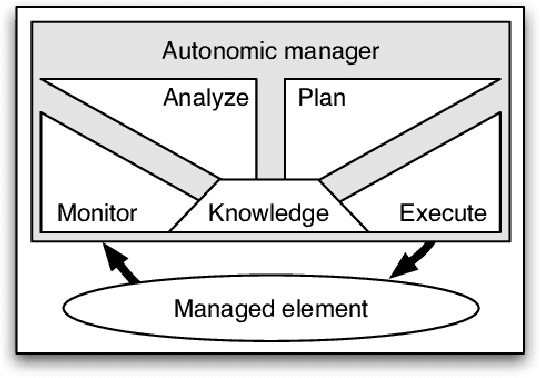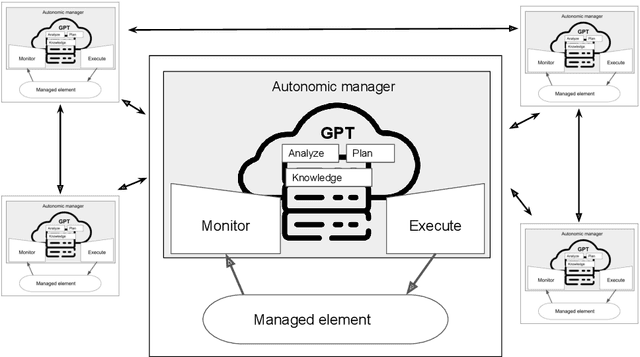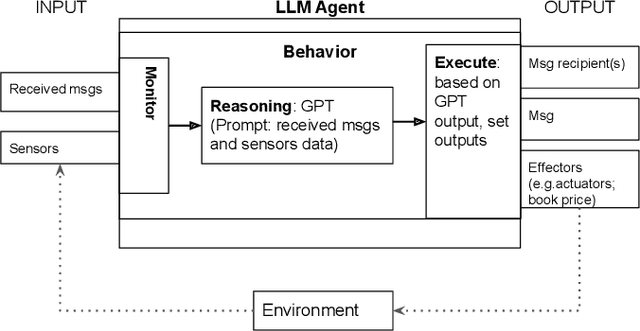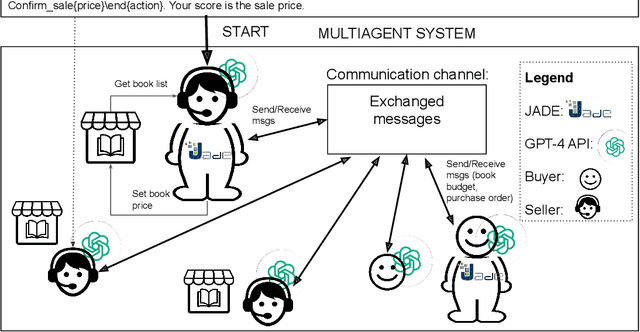Self-Adaptive Large Language Model (LLM)-Based Multiagent Systems
Paper and Code
Jul 12, 2023



In autonomic computing, self-adaptation has been proposed as a fundamental paradigm to manage the complexity of multiagent systems (MASs). This achieved by extending a system with support to monitor and adapt itself to achieve specific concerns of interest. Communication in these systems is key given that in scenarios involving agent interaction, it enhances cooperation and reduces coordination challenges by enabling direct, clear information exchange. However, improving the expressiveness of the interaction communication with MASs is not without challenges. In this sense, the interplay between self-adaptive systems and effective communication is crucial for future MAS advancements. In this paper, we propose the integration of large language models (LLMs) such as GPT-based technologies into multiagent systems. We anchor our methodology on the MAPE-K model, which is renowned for its robust support in monitoring, analyzing, planning, and executing system adaptations in response to dynamic environments. We also present a practical illustration of the proposed approach, in which we implement and assess a basic MAS-based application. The approach significantly advances the state-of-the-art of self-adaptive systems by proposing a new paradigm for MAS self-adaptation of autonomous systems based on LLM capabilities.
 Add to Chrome
Add to Chrome Add to Firefox
Add to Firefox Add to Edge
Add to Edge